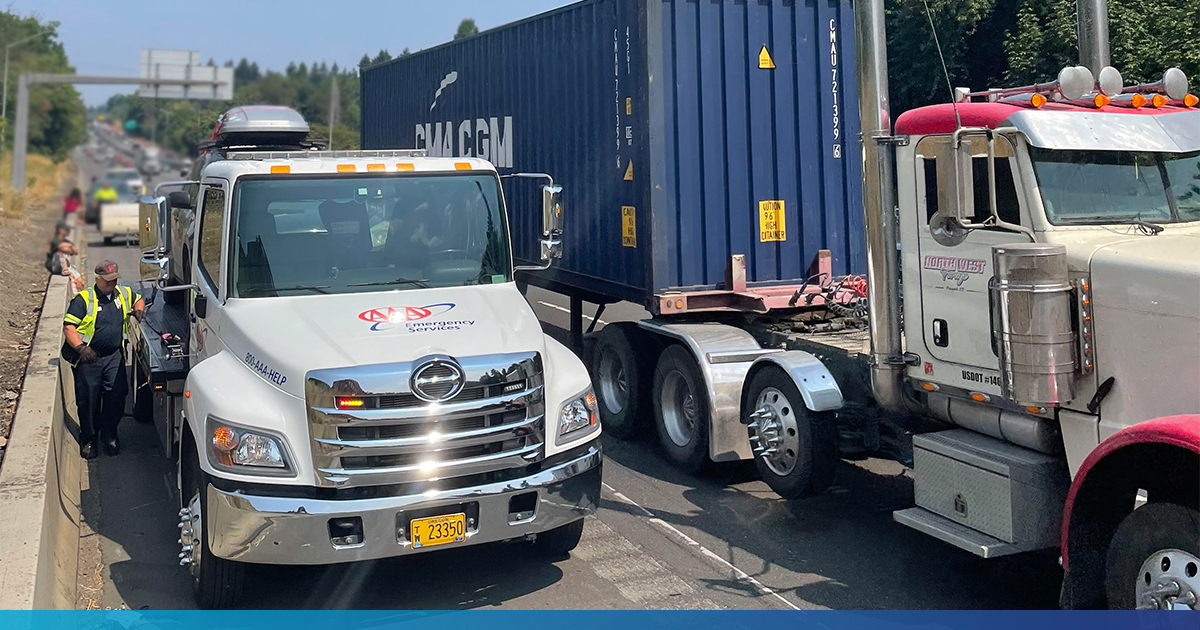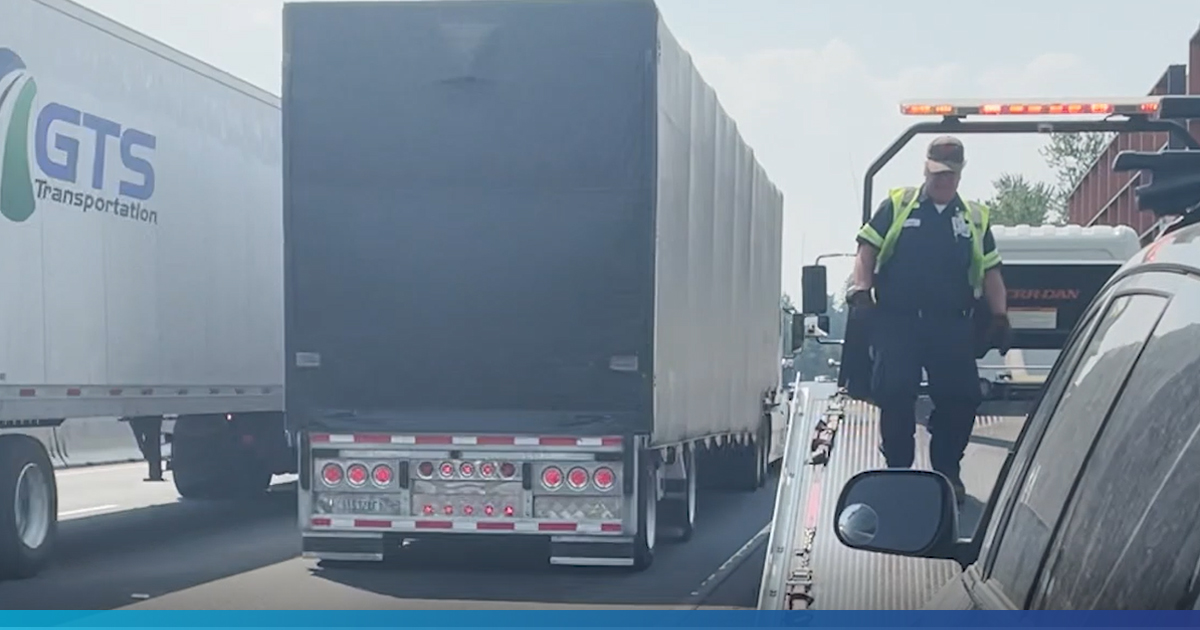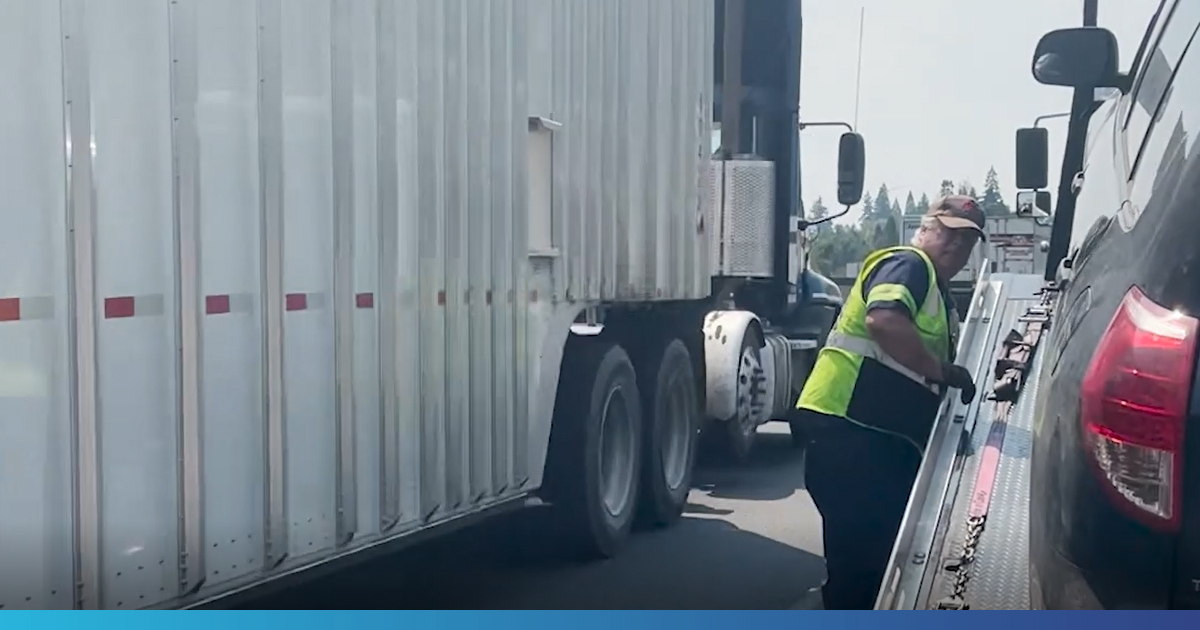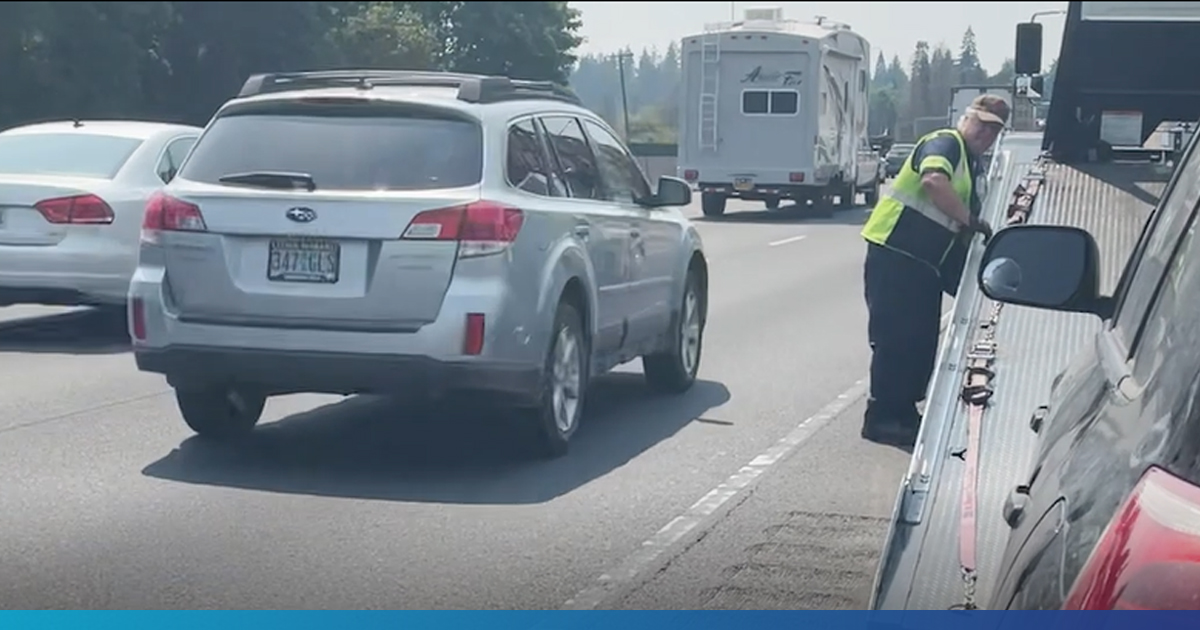PORTLAND, Ore., – The recent deaths of three AAA tow providers, killed while assisting drivers, show just how dangerous it is for those who work along the roadside.
Raymond Mitchell, 33, was killed Sept. 22 on I-5 southbound near Kalama, WA when a log truck hit him on the side of the freeway. Washington State Patrol says the driver who hit Mitchell was speeding. An investigation is underway and charges are possible. Glenn Ewing, 32, was killed July 4 near Cincinnati, OH, while placing a disabled vehicle on the back of a flatbed on the side of the road. He leaves behind a fiancée and two children. Only three weeks later, 30-year-old David Meyer was assisting a driver on the left-hand shoulder in Castle Rock, CO, when he was also struck and killed. As of August of this year, 14 tow providers have been killed while helping others at the roadside in 2021.
“Deaths like these can be avoided if drivers just slow down and move over. AAA service techs and other emergency responders are often only just a few inches away from speeding vehicles as they do their jobs. Please slow down, move over, and give them space,” says Marie Dodds, public affairs director for AAA Oregon. “AAA is committed to raising awareness of the dangers associated with working or being stranded at the roadside.”
Here’s video of AAA Oregon technician Dan Gamble who was assisting a AAA member on I-5 southbound in Portland, south of the Terwilliger curves, with traffic whizzing by just inches away.
Slow Down, Move Over Video Link




In Oregon, 12 people were killed while outside a disabled vehicle from 2015 through 2019. Nationwide, 1,622 were killed in that same timeframe, according to the National Highway Traffic Safety Administration’s Fatality Analysis Reporting System (FARS).
Every year, about 24 emergency responders including tow providers lose their lives at the roadside—meaning someone in this line of work is killed every two weeks. Hundreds more are injured while tending to disabled vehicles.
AAA and other traffic safety advocates have helped get Slow Down Move Over laws passed in all 50 states and the District of Columbia. In Oregon, drivers must move over to another lane or slow down at least five miles per hour below the posted speed limit when approaching police, fire, ambulance, tow trucks, road maintenance, and utility vehicles, as well as any vehicle that is stopped and is displaying warning or hazard lights, or a person is indicating distress by using emergency flares or posting emergency signs. The fine for a violation is $265 or $525 if within a safety corridor, school zone or work zone. (ORS 811.147) https://www.oregon.gov/odot/safety/pages/enforcement.aspx
Unfortunately, many drivers don’t comply with Slow Down Move Over laws, and others aren’t even aware that these laws exist. A new report from the AAA Foundation for Traffic Safety has some startling data:
- Among drivers who don’t comply with Slow Down Move Over laws, 42% thought this behavior was somewhat or not dangerous at all to roadside emergency workers. This demonstrates that drivers don’t realize how risky it is to be along the side of the road close to fast-moving traffic.
- Nearly a quarter of those surveyed (23%) are unaware of the Slow Down Move Over law in the state where they live
- Among those who are aware of their state’s Slow Down Move Over laws, about 15% report not understanding the potential consequences for violating the law at all.
“If you see a vehicle, a person or warning lights on the shoulder ahead, slow down and move over. You could literally be saving someone’s life,” adds Dodds.
The reality is that drivers are increasingly distracted when behind the wheel. Previous AAA Foundation research has found that drivers are up to four times as likely to crash if they are talking on a mobile phone while driving and up to eight times as likely to be in a crash if texting. Impairment is another factor which greatly reduces a driver’s judgment and reaction time.
AAA has tips for drivers to protect emergency responders, roadside workers and drivers with disabled vehicles:
Remain alert, avoid distractions and focus on the task of driving.
- Keep an eye out for situations where emergency vehicles, tow trucks, utility service vehicles or disabled vehicles are stopped on the side of the road.
- When you see these situations, slow down and if possible move one lane over and away from the people and vehicles stopped at the side of the road.
- If you are driving, don’t get impaired. If you’re impaired, don’t drive.
About Slow Down, Move Over
Since 2007, AAA has been instrumental in passing Slow Down Move Over laws in all 50 states and the District of Columbia, including advocating for those laws to cover tow providers and other emergency responders.
Oregon’s Slow Down Move Over law was implemented in 2010. In 2017, the law was expanded to include non-emergency vehicles (Senate Bill 34) and went into effect Jan. 1, 2018.
Additionally, AAA clubs have participated in educational and advocacy initiatives, creating public service announcements, and reaching out to state officials. But there is more work to be done. AAA is committed to raising awareness of the Slow Down Move Over laws and the dangers associated with working at the roadside.
AAA news releases, high resolution images, broadcast-quality video, fact sheets and podcasts are available on the AAA NewsRoom at NewsRoom.AAA.com.
Find local news releases at https://oregon.aaa.com/community/media/media-contacts.html

